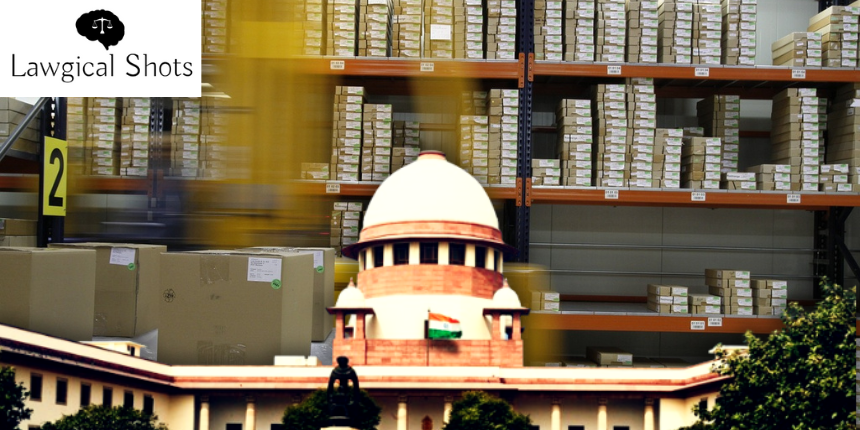The Supreme Court recently clarified that the process of relabelling the goods amounted to manufacture as under the Note 3 to Chapter 18 of the Central Excise Tariff Act. The Division Bench of Justice Abhay S. Oka and Justice Ujjal Bhuyan wasdealing with Commissioner of Central Excise Belapur v. Jindal Drugs Ltd. (decided on April 30, 2024).
Background
The instant appeal was made by revenue under Section 35L (1)(b) of the Central Excise Act, 1944 against order passed by CESTAT allowing Jindal Drugs’ appeal. It had held that labelling amounted to manufacture as per Note 3 to Chapter 18 of the Central Excise Tariff Act, 1985. CESTAT held Jindal drugs eligible for availing cenvat credit of the duty and for rebate on the duty paid while exporting goods.
Jindal Drugs is engaged in exporting cocoa butter and cocoa powder manufactured at Jammu factory. The goods from Jammu Factory as well as those imported from Malaysia and China were labelled at Maharashtra unit. Inspection by the Central Excise Officers led to dispute regarding labelling not amounting to manufacture.
The Central excise on February 25, 2013 held that there was no repacking/relabelling but additional labelling, and did not amount to manufacture. It further held that Jindal Drugs suppressed information about only undertaking labelling activity at Maharashtra unit with intent to avail irregular credit. Challenge against the said decision led to appeal before CESTAT which held that relabelling amounted to manufacture and upheld the cenvat credit availed.
Does Relabelling amount to Manufacture? – SC Analyses
The Apex Court considered whether the activity of labelling amounted to manufacture , as per Note 3 to Chapter 18 of the Central Excise Tariff Act. The Court explained that the Central Excise Act, now subsumed in the CGST Act,2017 was enacted to provide for levying central duties of excise on goods manufacture/produced in India. The Court further perused the definition of ‘manufacture’ under Section 2(f), Chapter 18 of Central Excise Tariff Act pertaining to cocoa and cocoa preparations, and the amendment to Note 3 for replacement of word ‘and’ and ‘or’ between the expressions ‘labelling or re-labelling of containers’ and ‘repacking from bulk packs to retail packs’.
Relabelling amounts to Manufacture
The Bench explained that “prior to 01.03.2008, the legislative intent was quite clear. The process to constitute manufacture should either be labelling or re-labelling of containers and repacking from bulk packs to retail packs. to 01.03.2008, the legislative intent was quite clear. The process to constitute manufacture should either be labelling or re-labelling of containers and repacking from bulk packs to retail packs…post 01.03.2008, Note 3 has undergone a change as indicated above. Now because of substitution of the word ‘or’ in place of the word ‘and’ between the two expressions ‘labelling or re-labelling of containers’ and ‘repacking from bulk packs to retail packs’, the earlier composite process of labelling or re-labelling of containers and repacking from bulk packs to retail packs has been split up into two independent processes. Labelling or re-labelling of containers is one process and repacking from bulk packs to retail packs has now become another process”
Conclusion
The Court named the three processes to be labelling or re-labelling of containers/repacking from bulk packs to retail packs/adoption of any other treatment to render the product marketable to the consumer. With this, the Bench clarified that if either of the three processes is satisfied it would amount to manufacture.
Coming to the instant facts, since there was no factual doubt, the Apex Court clarified that the process of relabelling amounted to ‘manufacture’. The Court upheld the view taken by CESTAT and affirmed its decision.








